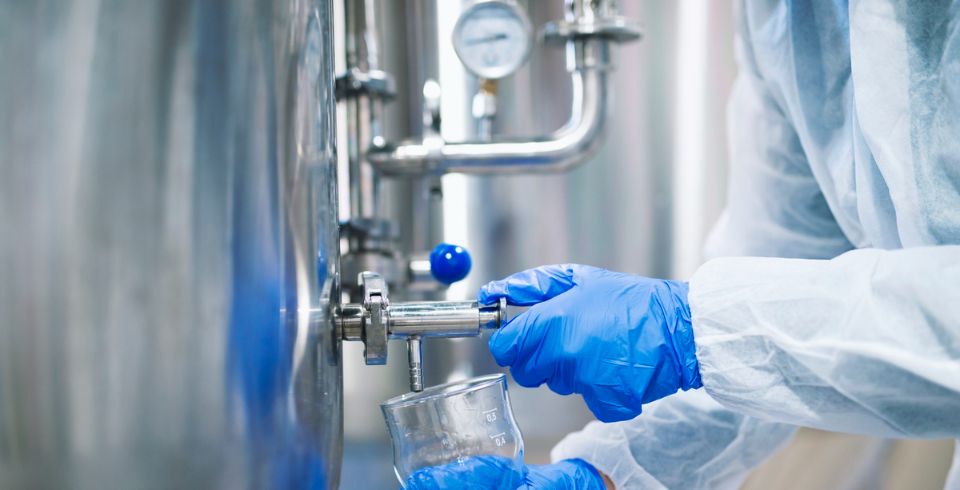
Each passing year reaffirms the sobering truth of water contamination, echoing globally. However, technological innovation is propelling us forward, addressing this issue with inventive solutions. From groundbreaking advancements in desalination to the emergence of climate-resilient infrastructure, this year promises to bring significant upgrades in our ongoing battle against water contamination. Now, let’s delve into these trends in this blog.
Trend 1: Advanced Filtration Technologies
Employing cutting-edge materials and designs, these systems significantly enhance their efficacy in eliminating contaminants from water sources. The incorporation of advanced filter materials, particularly membranes with reduced pore sizes, plays a main role in achieving a standard of purification. Here are the latest advancements in filtration technologies:
- Nanotechnology Advancements: Breakthroughs in nanotechnology have transformed filtration. Nanoparticles, like molecular gatekeepers, efficiently capture contaminants precisely, ensuring visible and microscopic impurities are effectively removed from the water.
- Advanced Membrane Systems: The evolution of filtration includes advanced membrane systems designed strategically to protect against impurities. These membranes selectively allow the passage of pure water molecules, creating an efficient barrier that goes beyond conventional standards, significantly enhancing water purity.
- Robotic Integration: A noteworthy development in Advanced Filtration Technology is the integration of robotics for monitoring and maintenance. Automated robots, equipped with sensors, navigate filtration processes, identifying real-time issues and enhancing water treatment facilities’ efficiency. This breakthrough ensures both responsiveness and longevity in filtration systems.
Trend 2: Smart Water Monitoring Systems
Smart Water Monitoring Systems represent a significant advancement in water management. The integration of IoT-based sensors and smart monitoring solutions allows for the continuous monitoring of various parameters such as pH levels, turbidity, and chemical composition, providing valuable insights into the health of water sources.
One of the key highlights of Smart Water Monitoring Systems is the usage of data analytics with sophisticated algorithms to proactively detect potential water quality issues. By identifying patterns and anomalies, stakeholders can take timely actions to address emerging challenges and uphold water quality standards.
Trend 3: Decentralized Water Treatment Solutions
Moving away from conventional centralized facilities, decentralized water treatment is now driving water purification efforts. These modular and scalable solutions offer practical and sustainable ways to enhance water quality, especially for remote or underserved areas. Decentralized water treatment is known to reduce infrastructure costs and minimize energy requirements for water distribution. Helping communities with greater control over their water resources, decentralized treatment promotes self-reliance and a sense of ownership.
Trend 4: Water Reuse and Recycling
Water reuse and recycling strategies are gaining increased attention due to the growing global population and environmental awareness. Communities and industries are increasingly prioritizing the adoption of these innovative approaches. By treating wastewater through advanced technologies two benefits are achieved:
- First, it contributes to the conservation of freshwater resources.
- Second, it mitigates environmental pollution.
Here are a few innovative approaches to treating wastewater for safe repurposing:
- Membrane Filtration: Semipermeable membranes ensure high purification levels and safe water repurposing.
- Advanced Oxidation Processes (AOPs): Potent oxidants like ozone or hydrogen peroxide break down pollutants, enhancing wastewater treatment efficacy.
- Electrochemical Technologies: Electrocoagulation and electro-oxidation removes contaminants through electrical reactions.
Trend 5: Green Technologies in Water Treatment
The fifth trend in water treatment is going green with technology. Solar-powered water treatment plants are changing the game from the old, energy-hungry methods to something kinder to our environment.
They help reduce pollution, doing their bit to fight climate change. And because they use the power of the sun, we make water treatment stronger and more Earth-friendly. Going green isn’t just about getting clean water; it’s about making a promise to take better care of our planet using smart and eco-friendly tech.
Trend 6: Innovations in Desalination
Recent strides in desalination technologies offer promising solutions for water scarcity challenges. Advances in methods like reverse osmosis and forward osmosis have significantly improved energy efficiency and enhanced cost-effectiveness. Historically associated with high production costs, recent breakthroughs in materials, membrane technologies, and engineering solutions have substantially reduced the overall expenses of desalination. This makes desalination a more accessible and economically viable option for regions grappling with water scarcity, offering hope for a reliable freshwater supply.
Trend 7: Climate-Resilient Water Infrastructure
Did you know that climate poses a threat to the quality of source water? Yes, by increasing the runoff of pollutants and sediment. It diminishes water availability due to drought and saltwater intrusion.
This is where the importance of climate-resilient water infrastructure emerges, aiming to address the critical need to sustain water security and minimize waste. This approach ensures a continuous and reliable water supply, even in unpredictable environmental conditions such as storms. Using cutting-edge technologies and sustainable practices, this aims to ensure a more reliable, adaptable, and eco-friendly water supply for the future.
These trends underscore the critical importance of water filtration moving forward. At Rite Water Solutions, we recognize the paramount significance of water treatment for the availability of clean and safe water for all.
We take pride in various offerings, including Nitrate and Iron Removal Plants, Reverse Osmosis, and Ultrafiltration Systems. Moreover, initiatives like the Jal Jeevan Mission and innovations such as the Solar Electro Chlorinator Technology, UV filtration, and cutting-edge technologies such as the HIX Nano Fluoride and Arsenic Removal Plants showcase our dedication to ensuring a large-scale supply of safe water. Join Rite Water Solutions to redefine water treatment, envisioning a future where these technologies are no longer needed, and water is inherently safe for all.

